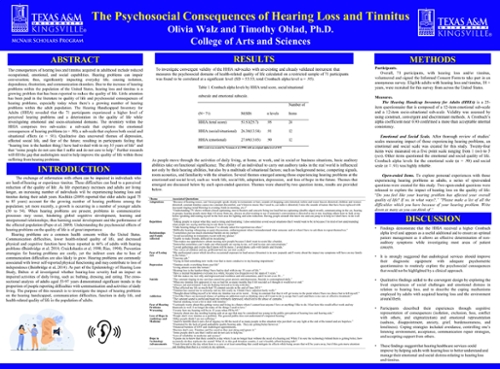The consequences of hearing loss and tinnitus acquired in adulthood include reduced occupational, emotional, and social capabilities. Hearing problems can impair conversation; thus, significantly impacting everyday life, causing isolation, dependence, frustration, and communication disorders. Due to the increase of hearing problems within the population of the United States, hearing loss and tinnitus is a growing problem that has been reported to reduce the quality of life. Little attention has been paid in the literature to quality of life and psychosocial consequences of hearing problems, especially today when there's a growing number of hearing problems within the adult population. The Hearing Handicapped Inventory for Adults (HHIA) revealed that the 71 participants experienced a higher level of perceived hearing problems and a deterioration in the quality of life while investigating emotional and socio-situational domains. The inventory within the HHIA comprises two sub-scales: a sub-scale that explores the emotional consequences of hearing problems (a = .90); a sub-scale that explores both social and situational effects (a= .91). Qualitative data uncovered themes of depression, affected social life, and fear of the future; resulting in participants feeling that "hearing loss is the hardest thing I have had to deal with in my 35 years of life" and that "some people do not care that I suffer and do not care to help." Further research will fill the gap that audiologists need to help improve the quality of life within those suffering from hearing problems.
Faculty Mentor: Dr. Timothy Oblad
Department of Psychology and Sociology


